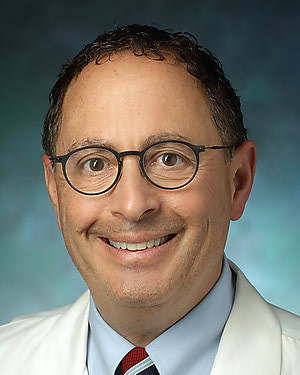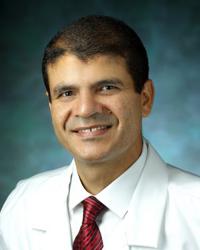Research Lab Results
-
Elisseeff Lab
The mission of the Elisseeff Lab is to engineer technologies to repair lost tissues. We aim to bridge academic research and technology discovery to treat patients and address clinically relevant challenges related to tissue engineering. To accomplish this goal we are developing and enabling materials, studying biomaterial structure-function relationships and investigating mechanisms of tissue development to practically rebuild tissues. The general approach of tissue engineering is to place cells on a biomaterial scaffold that is designed to provide the appropriate signals to promote tissue development and ultimately restore normal tissue function in vivo. Understanding mechanisms of cellular interactions (both cell-cell and cell-material) and tissue development on scaffolds is critical to advancement of the field, particularly in applications employing stem cells. Translation of technologies to tissue-specific sites and diseased environments is key to better design, understanding, and ultimately efficacy of tissue repair strategies. We desire to translate clinically practical strategies, in the form of biomaterials/medical devices, to guide and enhance the body's natural capacity for repair. To accomplish the interdisciplinary challenge of regenerative medicine research, we maintain a synergistic balance of basic and applied/translational research. -
Greider Lab
The Greider lab uses biochemistry to study telomerase and cellular and organismal consequences of telomere dysfunction. Telomeres protect chromosome ends from being recognized as DNA damage and chromosomal rearrangements. Conventional replication leads to telomere shortening, but telomere length is maintained by the enzyme telomerase. Telomerase is required for cells that undergo many rounds of divisions, especially tumor cells and some stem cells. The lab has generated telomerase null mice that are viable and show progressive telomere shortening for up to six generations. In the later generations, when telomeres are short, cells die via apoptosis or senescence. Crosses of these telomerase null mice to other tumor prone mice show that tumor formation can be greatly reduced by short telomeres. The lab also is using the telomerase null mice to explore the essential role of telomerase stem cell viability. Telomerase mutations cause autosomal dominant dyskeratosis congenita. People with this disease die of bone marrow failure, likely due to stem cell loss. The lab has developed a mouse model to study this disease. Future work in the lab will focus on identifying genes that induce DNA damage in response to short telomeres, identifying how telomeres are processed and how telomere elongation is regulated. -
Jeff Bulte Lab
The clinical development of novel immune and stem cell therapies calls for suitable methods that can follow the fate of cells non-invasively in humans at high resolution. The Bulte Lab has pioneered methods to label cells magnetically (using tiny superparamagnetic iron oxide nanoparticles) in order to make them visible by MR imaging. While the lab is doing basic bench-type research, there is a strong interaction with the clinical interventional radiology and oncology groups in order to bring the methodologies into the clinic.
-
Jeremy Sugarman Lab
Research in the Jeremy Sugarman Lab focuses on biomedical ethics—particularly, the application of empirical methods and evidence-based standards to the evaluation and analysis of bioethical issues. Our contributions to medical ethics and health policy include work on the ethics of informed consent, umbilical cord blood banking, stem cell research, international HIV prevention research, global health and research oversight.
-
Cardiovascular Stem Cell Program
The research program aims to advance cardiovascular biology and medicine by focusing on pluripotent stem cell-based modeling and therapy and by nurturing future leaders in regenerative medicine. -
Chulan Kwon Laboratory
The C. Kwon Lab studies the cellular and molecular mechanisms governing heart generation and regeneration. The limited regenerative capacity of the heart is a major factor in morbidity and mortality rates: Heart malformation is the most frequent form of human birth defects, and cardiovascular disease is the leading cause of death worldwide. Cardiovascular progenitor cells hold tremendous therapeutic potential due to their unique ability to expand and differentiate into various heart cell types. Our laboratory seeks to understand the fundamental biology and regenerative potential of multi-potent cardiac progenitor cells – building blocks used to form the heart during fetal development — by deciphering the molecular and cellular mechanisms that control their induction, maintenance, and differentiation. We are also interested in elucidating the maturation event of heart muscle cells, an essential process to generate adult cardiomyocytes, which occurs after terminal differentiation of the progenitor cells. We believe this knowledge will contribute to our understanding of congenital and adult heart disease and be instrumental for stem cell-based heart regeneration. We have developed several novel approaches to deconstruct the mechanisms, including the use of animal models and pluripotent stem cell systems. We expect this knowledge will help us better understand heart disease and will be instrumental for stem-cell-based disease modeling and interventions for of heart repair. Dr. Chulan Kwon is an assistant professor of medicine at the Johns Hopkins University Heart and Vascular Institute. -
Carlo Colantuoni Laboratory
Dr. Colantuoni and his colleagues explore human brain development and molecular mechanisms that give rise to risk for complex brain disease. His team uses genomic technologies to examine human brain tissue as well as stem models and vast public data resources.
-
Grayson Lab for Craniofacial and Orthopaedic Tissue Engineering
The Grayson Lab focuses on craniofacial and orthopaedic tissue engineering. Our research addresses the challenges associated with spatio-temporal control of stem cell fate in order to engineer complex tissue constructs. We are developing innovative methods to guide stem cell differentiation patterns and create patient-specific grafts with functional biological and mechanical characteristics. We employ engineering techniques to accurately control growth factor delivery to cells in biomaterial scaffolds as well as to design advanced bioreactors capable of maintaining cell viability in large tissue constructs. These technologies are used to enable precise control of the cellular microenvironment and uniquely address fundamental questions regarding the application of biophysical cues to regulate stem cell differentiation. -
Borahay Lab: Gynecologic and Fibroids Research
Dr. Borahay's lab focuses on understanding pathobiology, developing novel treatments, and carrying out high quality clinical trials for common gynecologic problems with a special focus on uterine fibroids. Our lab also investigates the causes and novel treatments for menstrual disorders such as heavy and irregular periods. In addition, Dr. Borahay’s team explores innovative approaches to minimally invasive gynecologic surgery, focusing on outpatient procedures with less pain and faster recovery times. -
Dmitri Artemov Lab
The Artemov lab is within the Division of Cancer Imaging Research in the Department of Radiology and Radiological Science. The lab focuses on 1) Use of advanced dynamic contrast enhanced-MRI and activated dual-contrast MRI to perform image-guided combination therapy of triple negative breast cancer and to assess therapeutic response. 2) Development of noninvasive MR markers of cell viability based on a dual-contrast technique that enables simultaneous tracking and monitoring of viability of transplanted stems cells in vivo. 3) Development of Tc-99m and Ga-68 angiogenic SPECT/PET tracers to image expression of VEGF receptors that are involved in tumor angiogenesis and can be important therapeutic targets. 4) Development of the concept of “click therapy” that combines advantages of multi-component targeting, bio-orthogonal conjugation and image guidance and preclinical validation in breast and prostate cancer models.

